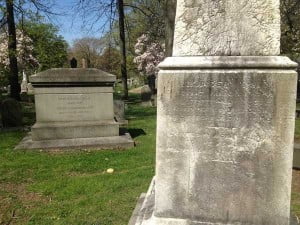Ask God to Use His Rod
A PERSONAL TESTIMONY
By Max Belz
 It is a blessed experience, at least after the initial shock, to know the chastening stroke of God’s rod. In Psalm 23:4 David says to his Lord, “Thy rod and thy staff they comfort me.”
It is a blessed experience, at least after the initial shock, to know the chastening stroke of God’s rod. In Psalm 23:4 David says to his Lord, “Thy rod and thy staff they comfort me.”
Many pastors and members of modernist controlled churches who yearn to be separate from the apostate bodies are still struggling as captives in the ecclesiastical web, being forced constantly into compromising positions, yet never making the final, important decision to separate. Any true Bible-believer who contends for the faith within a modernist controlled church body soon finds that real comfort of conscience is impossible.
I believe that the first step for many such troubled brethren is simply this: “Ask God to use His rod.”
Three years ago I asked God to remove me from the ownership and management of a prosperous grain business if it was in any way a hindrance to my Christian witness in His sight. I did not really want to leave the business, because it was profitable, I enjoyed the work, and 60 years of family tradition were back of it. But I did open the question with the Lord. He took care of the rest. He used His rod, rapping my financial knuckles just hard enough to make me willingly let go of the big warehouses and 60 years of family tradition in the grain business. I started training for the ministry in the Presbyterian Church in the U.S.A.
But that was not enough. I still needed more rod treatment. Against the pleadings of many friends I stubbornly determined to get my training from the nearest Presbyterian university, even though modernistic teachers and speakers were openly tolerated and honored there. At the same institution were instructors and speakers who held earnestly to the “faith once delivered,” and I assured my protesting fundamentalist friends outside that they did not need to worry about my spiritual welfare. Then, about two years later, a doctrinal dispute arose in the school, and it became apparent that fundamentalist forces were not in control of the Presbyterian Church in the U.S.A. It seemed impossible that I could avoid the issue further, and, finally, on my knees I asked God to use His rod again if I needed it. He did not long delay in making a vigorous answer. This time He rapped my ecclesiastical knuckles, removing me from a thriving Presbyterian student pastorate and my faithful wife and four children from a comfortable Presbyterian manse at Rowley, Iowa. These rapid removals came fast on the heels of my utterance of the following words at a Presbytery meeting:
“I am persuaded that the executive committee and the administration of the University of Dubuque have now openly committed themselves by their actions to a ‘middle-of-the-road,’ lukewarm theological policy. I fear the consequences both for them and myself it it continues thus. I cannot return (as a student) unless there is a sharp turn toward a true Calvinistic position.”
Although the battle thus precipitated still rages, God’s rod and staff have led us into the happy fellowship of the Bible Presbyterian fold, and graciously led the little Cono Center Presbyterian Church congregation along with us. I an joyfully testify today to the riches of God’s grace in Christ to me as a sinner and to the fact that His rod has comforted me.
Just a few hours before writing this I accompanied Jim Andrew, Iowa Choirtet second tenor, in a visit at about a dozen homes in our Cono neighborhood. Most of these folks have been through the thick of the battle which arose from our renunciation of the jurisdiction of the Presbyterian Church in the U.S.A., and I never talked with people more radiant and happy in their daily Christian testimony. Jim Andrew made the same observation several times between visits. These Cono people have been deprived of their little church building and denied the use of their church treasury by virtue of a court order instituted by the Presbytery of Dubuque in the Presbyterian Church in the U.S.A. Yet in the midst of this apparent confusion they have seen God answer their prayers, leading them into the pleasant pastures of a marked spiritual revival. Souls are being saved in the Cono neighborhood, and attendance at the Sunday morning, evening, and midweek services is better than for many years.
Has God’s rod been on this little flock? We believe it has. But it has brought comfort – a living, happy and real comfort – a dynamic, militant and moving comfort. God’s rod has driven us graciously to the table prepared in the presence of our enemies. Our cup at Cono is running over, and, though the Presbytery of Dubuque has forced us from the little church built by our fathers, we believe surely that goodness and mercy shall follow us all the days of our life, and we look forward to dwelling in the house of the Lord forever.
Many dear brethren in the modernist controlled churches today can be led out into real comfort if they will open the question earnestly with their Lord. The first step for many may simply be to “Ask God to use His rod.” The next step will surely be a definite step of separation from apostasy, and the results will be a happy and blessed surprise.
“Thy rod and thy staff they comfort me.”



